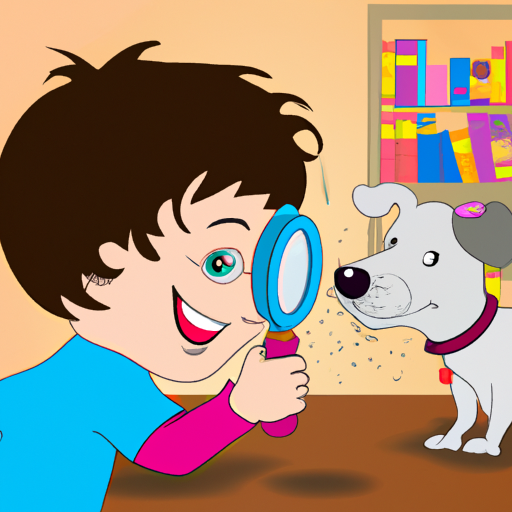It’s a question that has crossed every dog owner’s mind at one point or another: Why do dogs smell like dogs? The answer lies not just in the physical nature of our canine companions, but also in the complex world of scent and behavior.
- Dogs have a natural odor that is part of their unique biology.
- The “dog smell” is influenced by a variety of factors, including diet, health, and environment.
- Regular grooming and veterinary care can help manage a dog’s scent.
Table of Contents
- Unique Biology of Canines
- Factors Influencing Dog Smell
- Managing Your Dog’s Smell
- Frequently Asked Questions
Unique Biology of Canines
Dogs, like all animals, have a unique biology that contributes to their distinctive scent. Their bodies produce oils that protect their skin and fur. These oils, combined with sweat excreted from their paw pads and other odors produced by their bodies, create what we commonly refer to as the “dog smell”.
According to the American Kennel Club, dogs also have anal glands that secrete pheromones, which carry information about the dog’s sex, age, and mood. This is one reason why dogs engage in the peculiar behavior of sniffing each other’s rear ends.
A useful guide on understanding your pet’s biology can be found here.
Factors Influencing Dog Smell
There are several factors that can influence how a dog smells, including:
- Diet: What a dog eats can significantly affect its smell. Certain foods can cause dogs to emit a stronger odor.
- Health: Certain health problems, such as skin infections or dental disease, can cause a dog to smell bad.
- Environment: Dogs that spend a lot of time outdoors may pick up smells from their environment.
Detailed information about the impact of diet on dog smells is available here.
Managing Your Dog’s Smell
While it’s impossible to completely eliminate the natural “dog smell”, there are ways to manage it. Regular grooming, including brushing and bathing, can help to minimize the odor. Additionally, regular veterinary check-ups can help to identify and treat any health issues that may be contributing to the smell.
For a comprehensive guide on grooming your dog, check out this link.
Frequently Asked Questions
1. Why does my dog smell even after a bath?
Even after a bath, dogs can still smell due to the oils on their skin and fur. These oils are necessary for their health, so while bathing can help manage the smell, it won’t completely eliminate it.
2. Can a dog’s smell indicate health problems?
Yes, changes in a dog’s smell can be a sign of health issues, such as skin infections or dental disease. If you notice a sudden change in your dog’s smell, it’s a good idea to consult with a veterinarian.
3. How often should I bathe my dog?
The frequency of bathing can depend on a number of factors, including the dog’s breed, lifestyle, and individual health needs. As a general rule, dogs should be bathed at least once every three months, but some dogs may require more frequent or less frequent baths.
Understanding the “dog smell” can help us appreciate the complex biology of our furry friends and provide them with the best care possible. So the next time you catch a whiff of that unmistakable “dog smell”, remember that it’s just part of what makes your pet unique.



